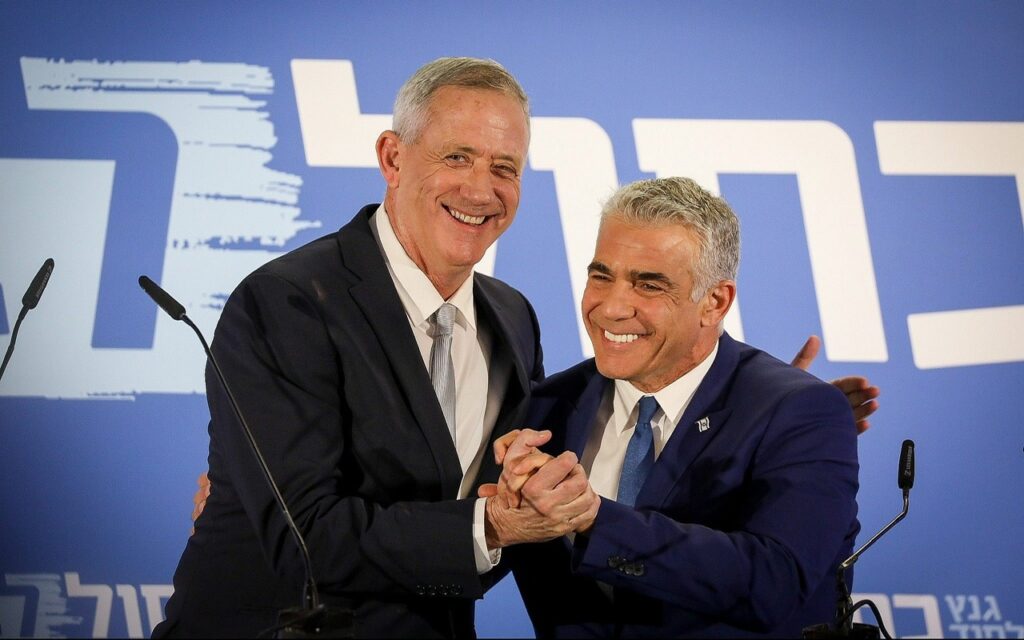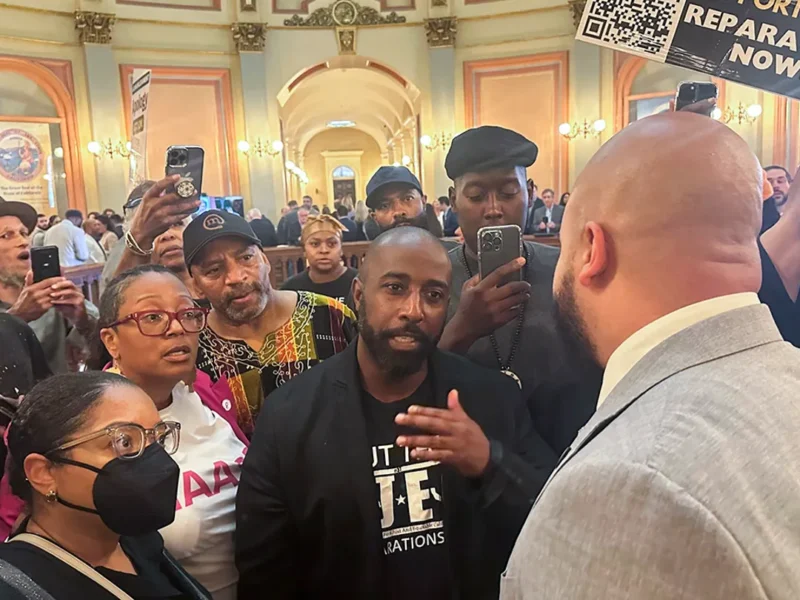Netanyahu vs. The Israeli Deep State
The Israeli Prime Minister Benjamin “Bibi” Netanyahu has been indicted in three cases accusing him of corruption. In essence, these charges allege that he did or offered favours for several media companies in exchange for gifts in the form of “positive” coverage. The indictment alone could see the Prime Minister unseated from his office in spite of the fact that two elections this year his party and his allies have won a plurality (but not a majority) in parliamentary elections. Are the Israeli Civil Service and political elites trying to unseat a sitting Prime Minister against the will of the voters? What are the implications of such a precedent?
The Case Against Bibi
The evidence in these three cases under which he is being charged, not unlike the “evidence” against President Trump, is circumstantial and weak. If brought to trial these cases will collapse and the Prime Minister (PM) will be exonerated. Unfortunately, he can be forced to leave office by the courts in order to stand trial. This will certainly have an impact on the upcoming coalition talks and/or elections, he will have been punished with denial of office before the trial can exonerate him. This is why these charges, which have been pending for more than a year, have not led to an indictment until now, the time when they will be most harmful to his political career. The timing of the indictments tells you everything you need to know about the cases.
One of these cases, The Yediot Ahranot-Israel Hayom Affair, is being charged as a “breech of trust” because the supposed deal never came to fruition. There is a sufficient lack of evidence of criminal wrongdoing that the case stands to be closed. In the other two cases, no evidence of a direct “quid pro quo” or favours from Netanyahu in exchange for gifts has been proven, forcing the prosecutors to fall back on circumstantial evidence.
These cases balance upon the fulcrum of supposed “positive media coverage” as a gift from these companies in exchange for Netanyahu’s help with political and legal matters. How can you prove that positive media coverage was a gift? In other words, several media companies stopped hating on the popularly elected PM and this constitutes a gift in exchange for political favours? The very idea is ridiculous. This cannot stand up to a true test of evidence before a triar of fact in an open court of law; but it does not have to. These indictments alone, filed as they have been at a critical moment in the Prime Minister’s political career, can do more harm than any conviction ever could.
Bibi Embattled
Prime Minister Netanyahu is in every way a politician. A self-serving opportunist eager to promote his own agenda and ever concerned first and foremost with his own political fortunes–the very definition of a politician. He is an especially successful politician who has navigated the stormy seas of Israeli politics for more than three decades, at one time being ejected from office by voters only later to rehabilitate his political career. Since 2009 Israeli voters have entrusted him with power, endorsing his leadership in three separate elections (2009, 2013, and 2015).
In two successive elections this year, Netanyahu and his allies won the greatest number of seats but failed to achieve a majority of parliament. In simple terms, he has not won these elections but he has not lost them either. As a third election looms, the indictment of the Prime Minister is critically timed to deny Israeli voters their choice of leader. It comes at a time when a third election could be held because no governing coalition has yet emerged following the two preceding elections. Even this year’s second election was unprecedented and the prospect of third election is even more outlandish. The entire political elite, the Civil Service, and the insider “establishment” have turned on Bibi Netanyahu. It is not his particular policies necessarily but he, himself who is under attack.
Why has this occurred? Bibi’s leadership style is somewhat severe. He has made many enemies in his time, pushing aside all political competitors to prop up his position. This is not to say that while some have grown tired of his leadership style that they have not appreciated the benefits of his leadership. As Finance Minister in the early aughts and later as Prime Minister since 2009, his advocacy of free market policies has led to great prosperity in Israel. Israel is the fastest growing economy in the developed world. Israel has more tech startups and entrepreneurs than can be counted. Israel’s security has been maintained and major conflicts averted. Israel has seen a thawing of relations with Arab states who perceive Iran to be the greater threat. These leaders do not like Netanyahu but they respect him. A new and untested leader for Israel would mean uncertainty for Israel’s economy, its precarious alliances, and the prospect that Israel’s arch nemesis, the terror state of Iran, would choose to test the new leader with a major conflagration.

In that they enjoy the comforts of Netanyahu’s leadership, why are Israeli voters not returning him to office? Israel’s old-school leftists still cling to a nostalgia for the failed socialist policies of the past, destructive though such policies would certainly be. Those who have grown accustomed to being oligarchs now face competition from a rising Israeli middle class, as capitalism breaks down the old elite-commoner dynamic. Mostly, it is that Netanyahu promotes this prosperity and security by pressing his own agenda without succumbing to the common group-think of the elite or bowing to their wishes. Unfortunately, he is also on the wrong side of certain social issues, giving special privileges to the ultra-orthodox population, including exemption from mandatory military service and special social welfare programs not available to the general population. These policies are very harmful to the Israeli economy and will have great negative consequences in the future. They have led one political leader, Avigdor Liberman, a one-time ally of Netanyahu to turn against him seeking to push Bibi to reverse course on these issues. The ultra-orthodox parties in parliament, however, have been close allies of Netanyahu and he seeks to placate them in exchange for their loyalty. If Netanyahu ultimately falls from power now, it will be for this reason, rather than his personal unpopularity with Israel’s elites.

If another round of elections follows, it is the Israeli voters who should decide whether Netanyahu continues to serve as their PM through the complex nuances of their multi-party proportional election system, not the Attorney General or the courts. It is a dangerous precedent to allow these unelected, unaccountable institutions to veto or precede the choices of the voters. The question that hangs over the Israeli political system is whether it is the voters or the civil servants and political elites who should decide who leads Israel. If Netanyahu falls, whatever one might think of him, Israeli democracy will be dangerously weakened.
Civil Masters
Since the turn of the 20th Century the civil services in several countries throughout the Western World, especially intelligence and military apparatuses, have grown in power and influence. Civil servants have grown accustomed to being consulted in decision making and to resisting efforts by elected officials to make policy according to their own agenda–an agenda that must answer to popular accountability. Civil servants, however, do not answer to voters. In the United States and Israel alike these civil servants are now seeking to become civil masters.
In the United States today civil servants have had the chutzpah (bad attitude or nerve) to testify before Congress and whine about how the sitting, elected president is not following their lead in policy making. Moreover, they are trying to imply that any president who fails to heed their counsel is not a legitimate leader. Apparently, they have never read the Constitution, which makes it imminently clear that the President alone holds all executive power. These are dangerous ideas and destructive precedents about which voters of all persuasions should be deeply concerned. From the United Kingdom to the European Union, from the United States to Israel, civil servants seek ultimate power over elected governments. They seek to punish voters for daring to elect officers who do not endorse the prevailing views of the Civil Service and the political elite. In simpler terms, these government employees do not believe Donald Trump should be President or Bibi Netanyahu Prime Minister and they are seeking the punish the voters for daring to defy their will.







